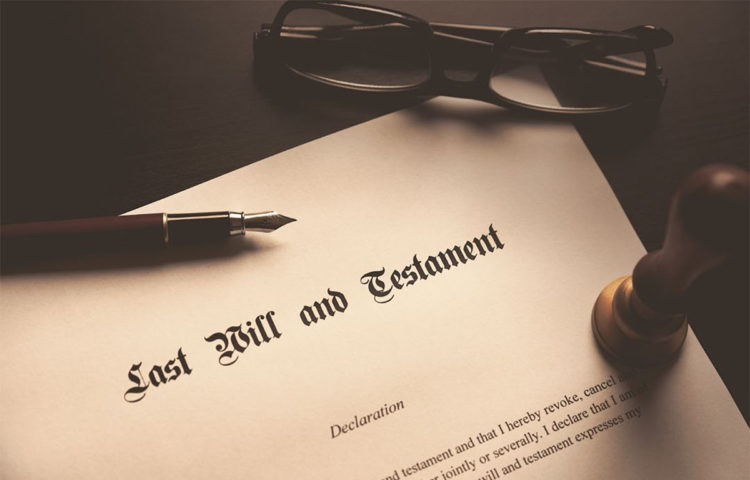Create a Will and Trusts to Protect Your Assets and Loved Ones

Beloved Black Panther actor Chadwick Boseman sadly died without a will. What does that mean for his wife? She is currently requesting to be the executor of his estate. During court proceedings, she will be required to give notice to anyone who might have rights to his estate, such as his brothers and parents.
Unfortunately, other famous people including Prince did not have wills or trusts when they died. In Aretha Franklin’s case, she had handwritten documents, leaving the court to determine whether they pass as valid wills. The distribution of her assets are hung up in court and there have been ongoing family disagreements about those assets, according to a New York Times article.
These celebrities stories serve to remind us of what can happen if at least two critical elements of an estate plan aren’t in place—a will and trusts. Without them, family disputes can arise, and assets can be tied up in probate courts for years. Probate is a public process in which a judge decides who will receive assets according to your state’s laws. Typically, closest relatives are given priority.
Why a Will Matters
Establishing a will allows you to define your wishes for how you want your assets distributed after your death. By creating one, you’ll help your loved ones avoid lengthy court proceedings and the cost of a public probate process. Most importantly a will can eliminate family rifts over items like second homes and cherished collectible items.
Also, a will allows you to name an executor to help manage the distribution of your estate and can allow you to name guardians for your children. Without a will, the courts will decide who will care for them. In addition, you can name a property manager who takes care of any real estate or personal assets you may own. You can even name a trusted caretaker for your pets and leave that person money for their care.
Keep in mind, even if you have a will, if an asset isn’t set up in a trust or titled as transferable on death, probate may still be a necessary step in certain instances for the beneficiary to legally obtain ownership of the asset. Unlike dying intestate where you have no will or trust, probate in this instance may be a simpler process.
Do You Need a Trust?
By establishing a trust or multiple trusts, you can protect your assets and loved ones during your life and after your death. Trusts can also help mitigate the tax burden on your estate. A revocable living trust, for example, puts assets into the trust for a lifelong benefit. You can retain control over your trust during your life, and then have the assets, such as a home, bank accounts and stocks, transferred to your beneficiaries upon your death.
After your death, a revocable trust becomes irrevocable and serves as a substitute for, or in conjunction with, a will allowing the trustee to settle the estate without going through the probate process. Assets do need to be titled to the trust to ensure their proper distribution.
A trust also allows you to transfer assets during your life to loved ones, which could help minimize your tax burden. In 2020, current tax law, indexed for inflation, puts the estate tax exemption at $11.58 million for individuals and at $23.16 million for couples. The estate will have to pay taxes at the top rate of 40% on any amounts in excess of the exemption amount.
In addition, a trust can protect your assets from your heirs’ creditors. And, it can provide direction for how your assets should be managed during your lifetime should you become incapacitated. You can also use a trust to ensure a loved one with a disability is cared for after your death.
As far as charitable giving, you can establish a charitable trust as part of a tax-efficient, long-term plan while sharing your wealth with organizations you care about.
Consider Talking to Your Advisor
Each person has unique needs that will dictate which types of trusts are appropriate and what to include in his or her will. At Mariner, we offer this advice under one roof.
Your advisor will collaborate with in-house tax and estate planning professionals to help you design an estate plan and integrate that into your overall wealth management plan. It’s all part of our holistic approach to offering advice designed to last today and beyond.
Sources:
“Chadwick Boseman Died Without a Will, Wife Files Probate Case,” yahoo! Entertainment.
“A Year Later, the Fight Over Aretha Franklin’s Estate Continues,” The New York Times, 2019.
“Is a Trust Right for You?” Fidelity.com.
“How Do Estate, Gift and Generation-Skipping Transfer Taxes Work?”
Some services listed in this piece are provided by affiliates of MWA and are subject to additional fees. Additional fees may also apply for tax planning and preparation services.
This article is limited to the dissemination of general information pertaining to Mariner Wealth Advisors’ investment advisory services and general economic market conditions. The views expressed are for commentary purposes only and do not take into account any individual personal, financial, or tax considerations. As such, the information contained herein is not intended to be personal legal, investment or tax advice or a solicitation to buy or sell any security or engage in a particular investment strategy. Nothing herein should be relied upon as such, and there is no guarantee that any claims made will come to pass. Any opinions and forecasts contained herein are based on information and sources of information deemed to be reliable, but Mariner Wealth Advisors does not warrant the accuracy of the information that this opinion and forecast is based upon. You should note that the materials are provided “as is” without any express or implied warranties. Opinions expressed are subject to change without notice and are not intended as investment advice or to predict future performance. Past performance does not guarantee future results. Consult your financial professional before making any investment decision.
Mariner is the marketing name for the financial services businesses of Mariner Wealth Advisors, LLC and its subsidiaries. Investment advisory services are provided through the brands Mariner Wealth, Mariner Independent, Mariner Institutional, Mariner Ultra, and Mariner Workplace, each of which is a business name of the registered investment advisory entities of Mariner. For additional information about each of the registered investment advisory entities of Mariner, including fees and services, please contact Mariner or refer to each entity’s Form ADV Part 2A, which is available on the Investment Adviser Public Disclosure website. Registration of an investment adviser does not imply a certain level of skill or training.
